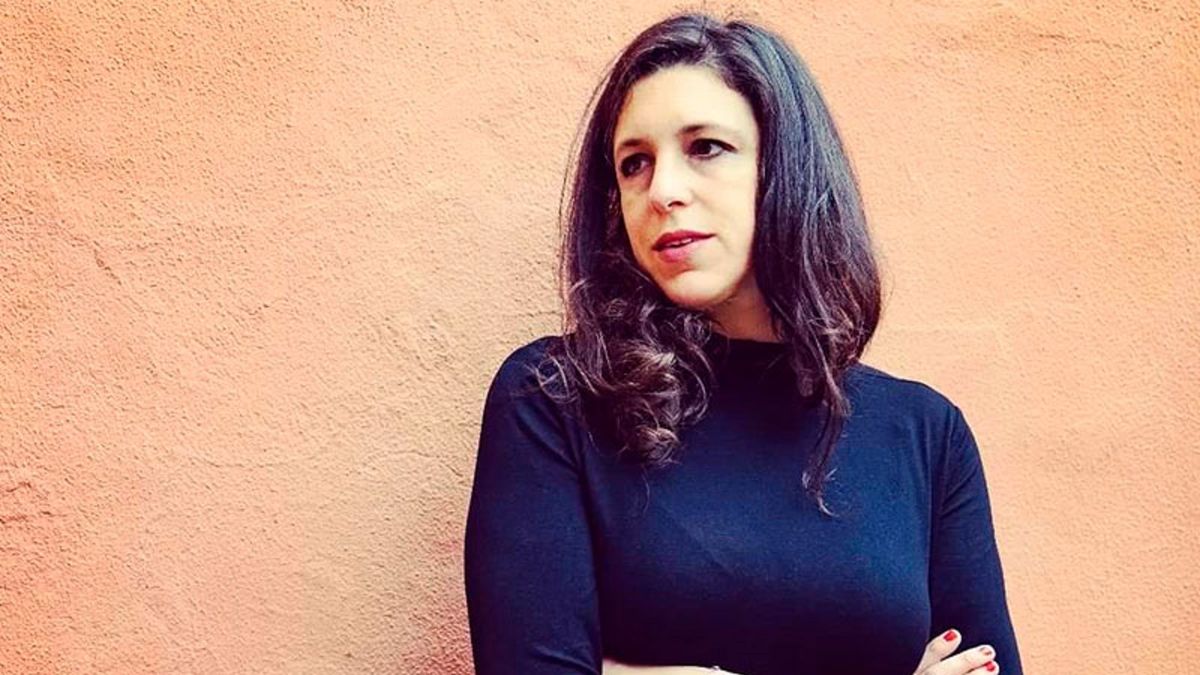After losing custody of her children and with restrictions on seeing them, Lisa Trajman kidnaps them and flees with them in “Losing one’s mind” (Anagrama) new novel by Ariana Harwicz. The novels of Harwiczan Argentine resident in France, quickly become plays or films like her debut, “Kill yourself, love” that produced by Martin Scorsese,will be starring Jennifer Lawrence and directed by Lynne RamsayWe talked to her.
Journalist: What Lisa does in “Losing the Judgment” by taking her children from her husband’s house, who has custody, is that kidnapping or recovery?
Ariana Harwicz: According to her, which is the point of view of the novel, it is a recovery, because they are her children and they have been appropriated by her ex-husband’s family, which she privately calls the appropriating family, linking it to politics. For her, taking her children is an act of justice, something totally legal because they are her children and they have been appropriated. For the law, what Lisa does is a kidnapping and is punishable: one cannot take the children that one had with another, to whom justice gave custody, it is absolutely aberrant. For the husband, it is a marital revenge.
Q: There were cases like this that were made public, with the difference that the kidnapper was the ex-husband.
AH: In general, it is men who are deprived of seeing their children. They cannot access them because they have a restraining order. That is why it was hard for me to change the point of view, so that it was the woman who was prevented from seeing her children. The novel adopts this other point of view. She is the violent one, the one accused of gender violence, the one who loses the trial, the one who has a restraining order.
Q: Are filial relationships and criticism of love the central themes of your novels?
AH: The relationships are a little adulterated. The filial relationships are disturbed as something that is built in the family framework. Love is something disturbed, ambiguous, that borders on illegality all the time. The relationships of my characters are always filial because the greatest drama is condensed in blood relations.
Q: Why does Lisa mix what she does, what happens to her, what she remembers and what she imagines?
AH: I find it difficult to get out of the character’s mind. The momentum of the writing, the strength of the prose, the images I find are through the character’s mind. I can’t put myself in the second or third person. I find that distance difficult when I try to follow the character’s pathos, and the novel is a road movie of Lisa’s desperation. In the past, which is in italics, she returns to her story with Armand, the father of her children. In my novels, the present is always supported by a large iceberg from the past.
Q: You use theatrical telephone dialogues between Lisa and Armand that give another way of getting to know them.
AH: The theater is always there, whether recognizable or oblique, because I think of the construction of the scenes and the dramatic conflicts in a theatrical way. In “Perder el juicio” there are dialogues that do not appear in other novels. This dialectic between Lisa and Armand makes his voice appear, and it is not just a soliloquy of the protagonist as in “Matate, amor.”
Q: Do your characters cross the boundaries of morality?
AH: Morality, amorality or immorality are not something that belongs to literature, but to life. Judging the evil, cruelty, perversion of a man or a woman is fair because life is at stake in something else, but in art what is at stake is not who transgressed morality, but knowing the suffering, the pain or the enjoyment of each character. Mine transgress the law, they always behave in ways that are reprehensible to the law.
Q: Why do your works make it into theatre and film?
AH: It’s a mystery. I didn’t propose it, it wasn’t something planned or thought out that would later go to theater or film. The first surprise was the proposal of “Matate, amor” for theater, then all the others came. I think it’s because of something mysterious that has to do with my training. When I write I don’t think in a literary way, it’s a mixture. Maybe that’s why they go to theater later. And the text isn’t modified to make it theatrical.
Q: How did Scorsese decide to make a film of his first film, “Kill Yourself, Love?”
AH: It is almost impossible for a first novel to have a first film in Hollywood. I think that this exceptional fact is perhaps due to the fact that this novel was conceived in an exceptional way.
Q: Why do you say that?
AH: “Kill Yourself, Love” was not just another novel, a novel in which I already felt like a writer, or that I had an editor. It was a writing that was almost detached from literature. I didn’t know what I was writing or that it was a novel, or that it was going to be published. It was written in the margins, with an inaugural desperation. I think that is what Scorcese liked, that power.
Q: What do you think of the casting of the film?
AH: Fascinating. It brings together two very different, distant, apparently irreconcilable worlds. Far from my foreignness in the countryside, which has nothing to do with the mainstream or the elite or the intellectuals or literature or anything, and suddenly those who acquire the rights are people from the star system, from Hollywood. This strange, unexpected relationship seems to me to be convenient for art. Now “Losing the Judgment” is also going to be a film and a play.
Q: What is it now?
AH: Waiting for the premiere of the opera “Dementia” at the Colón on April 8, 2025, for the opening of the season. Writing it was a great challenge. The theme is absolutely original, it does not come from any previous novel or text. It deals with couples who win a scholarship at a writers’ residence. They are mixed marriages, she is a writer and he is a translator.
Source: Ambito
I am an author and journalist who has worked in the entertainment industry for over a decade. I currently work as a news editor at a major news website, and my focus is on covering the latest trends in entertainment. I also write occasional pieces for other outlets, and have authored two books about the entertainment industry.




